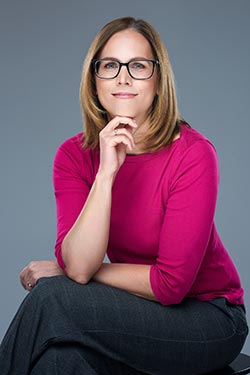Ing. Petra Trnková, Ph.D.
Head of the Medical Physics Research Group, Faculty of Nuclear Sciences and Physical Engineering, CTU in Prague

Petra Trnková leads the medical physics research group at FNSPE. Throughout her career, she has worked at leading research institutions (Paul Scherrer Institute, Harvard Medical School, HollandPTC, and the Medical University of Vienna), where she has been involved not only in research but also in clinical practice. She is an active member of the European Particle Therapy Network, the PTCOG Ocular Subcommittee, and the Upright Consortium. In 2014, she received a career grant from the Swiss National Fund, and in 2022, she was awarded the PTCOG Team Investigation Award.
What is your area of expertise at CTU, and what do you enjoy most about your work?
I focus on applied research in medical physics, specifically on developing methods to improve the accuracy and efficiency of irradiation in conventional and proton radiotherapy. My latest research project involves irradiating patients in an upright position, such as sitting. This is an innovative approach that could allow for the rotation of the patient relative to the radiation beam.
Currently, patients lie down during irradiation while the radiation device rotates around them, leading to high manufacturing costs. If it turns out that irradiation in an upright position provides the same or even better treatment quality, it could reduce the size of the machine, treatment rooms, and the cost of irradiators—especially in proton radiotherapy. This could make treatment accessible to a larger number of patients.
What led you to science?
I enjoy seeking answers to unanswered questions and connecting seemingly unrelated things. Even in high school, when someone brought me a problem they couldn't solve, I wouldn't stop looking for a solution until I found one. In applied research in medical physics, I love figuring out how to safely bring new technological discoveries to patients, improving treatments, and enhancing prognoses.
How do you balance your personal and professional life?
Sometimes better, sometimes worse. I always try to find the right balance between personal and professional life. However, there are demanding periods with many important deadlines when work takes priority. I try to compensate for these intense periods with long hikes in the mountains, disconnecting from technology to relax and recharge. I love nature and draw energy from it.
Would you recommend a scientific career to high school girls? If so, why?
Absolutely, especially for those who love adventure. You never know where science will take you. If you are open to the opportunities that scientific work offers, you can encounter fascinating problems, work at prestigious institutions, and meet many inspiring people. Science can also be incredibly fulfilling. When, after a long time and several failures, you finally solve a problem, it's an amazing feeling.